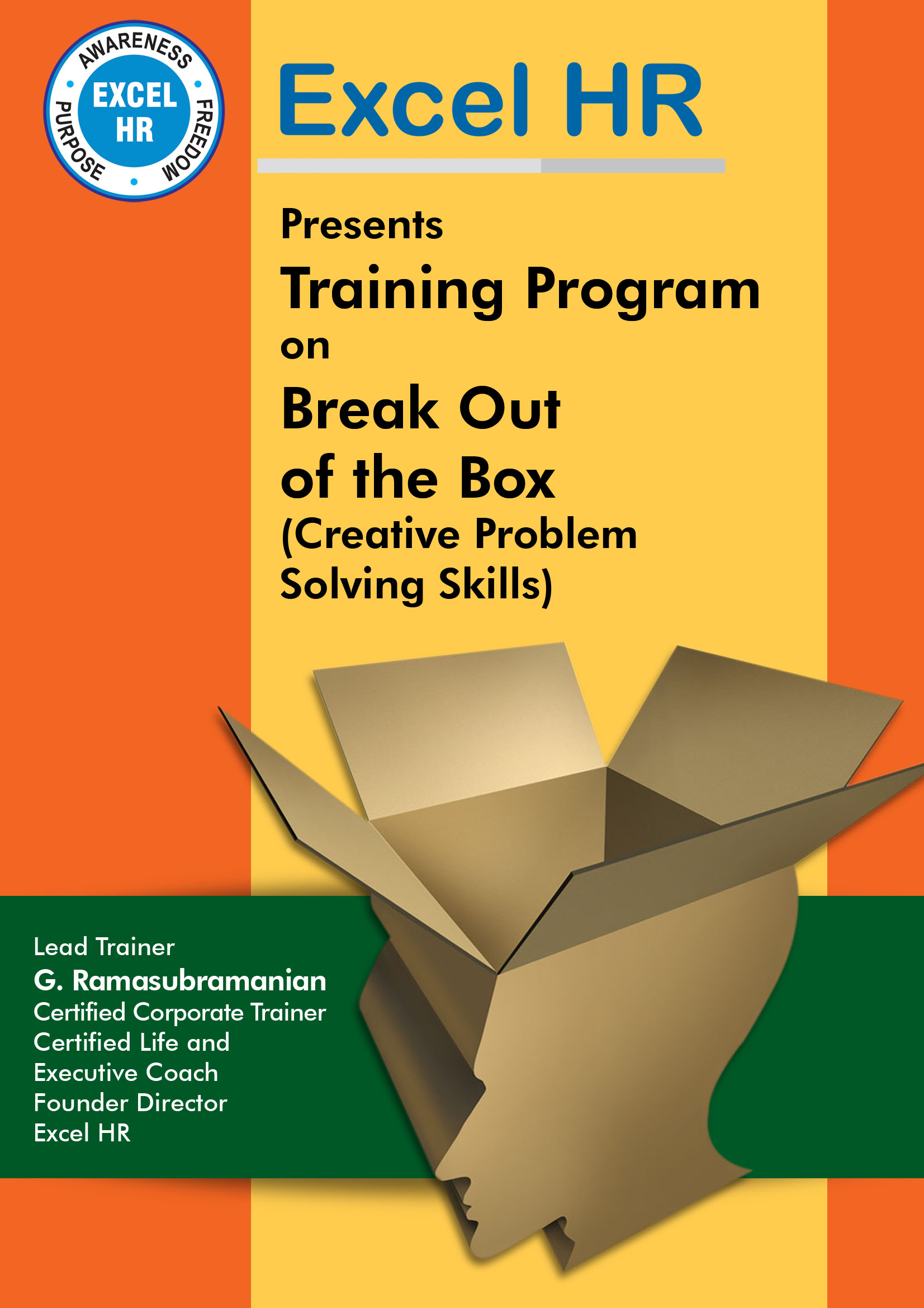| 1 |
Introduction and setting of objectives |
Frame setting and describing Methodologies and objectives |
| 2 |
Understanding Creative thinking |
Becoming aware of conditioned thinking and it's pitfalls,understanding creative thinking through creaative puzzles and case studies |
| 3 |
Creative thinking and critical thinking : the differences and functional us |
Comparing and contrasting creative and critical thinking |
| 4 |
Efficiency vs effectiveness |
Understanding efficiency and how it is different from effectiveness |
| 5 |
Being creative and problem definition |
Handling a group challenge activity and achieving the objective |
| 6 |
Steps to problem solving |
The five steps of problem solving |
| 7 |
Steps to personal creativity |
The basic elements of the creative process |
| 8 |
Practical steps for being creative |
Come out of the herd mentality Latch on to existing ideas with a new intent Change the way you look at things Keep on trying new things. |
| 9 |
Functional problems and behavioral problems |
Collecting one functional problem from each participant, at the work place,to come out with creative solutions in the course of the program |
| 10 |
The five why method |
Root cause analysis |
| 11 |
The fish bone method |
Getting an overall view of the problem state |
| 12 |
Mind mapping |
Using creativity to generate solutions |
| 13 |
The right and left brains |
Understanding the logic of the left brain and the creativity of the right brain |
| 14 |
Thinking styles |
Understanding the usage of different styles of thinking |
| 15 |
Associative thinking |
Focusing on similarities to generate new platforms for creation |
| 16 |
Possibility thinking |
Moving away from structured thinking to generate new possibilities |
| 17 |
Lateral thinking |
Parallel processing of data to come out with new solutions |
| 18 |
Provocative thinking |
To focus on " What if " thinking to break the limiting barriers |
| 19 |
Random thinking |
Focus on a random starting point to remove conditioning and come out with new approaches |
| 20 |
Planning Function |
The mind concept of planning |
| 21 |
Egg drop game |
Using the learnings to find a solution for a challenge |
| 22 |
Conclusions and action plan |
Summarising of the learnings8:00 AM - 9:00 AM |


